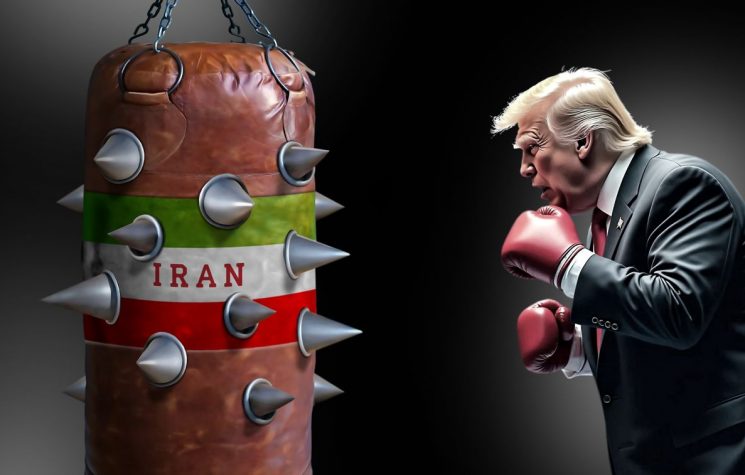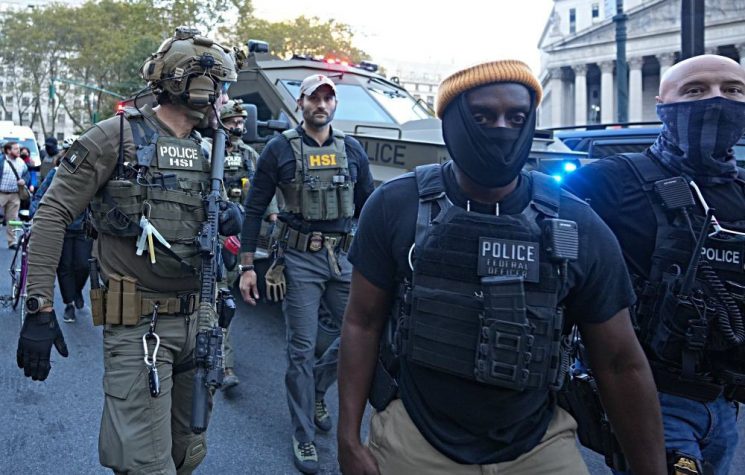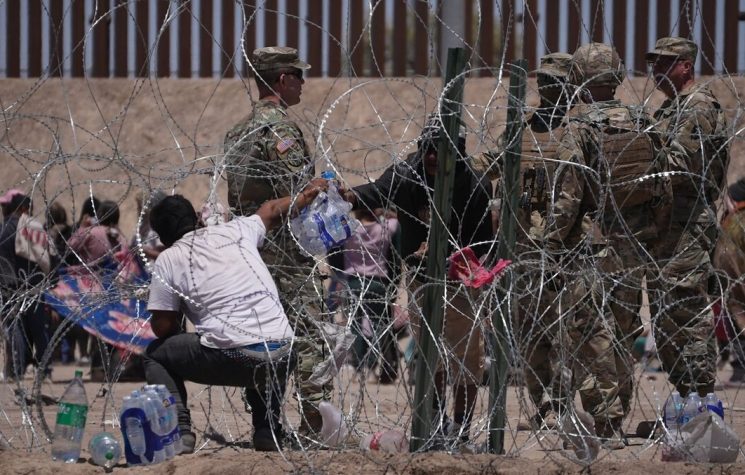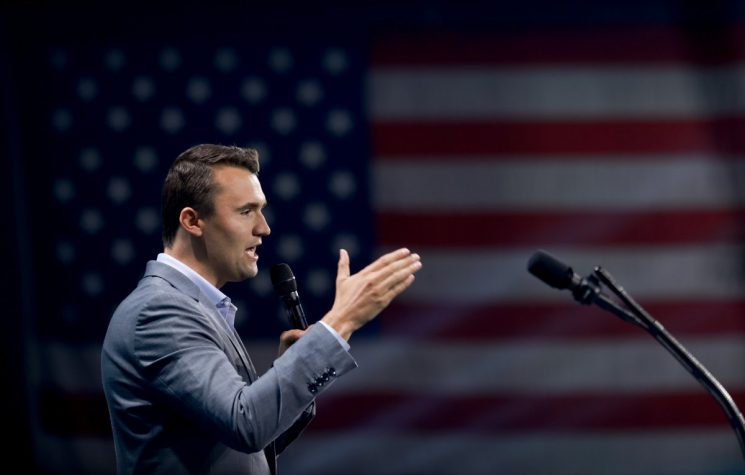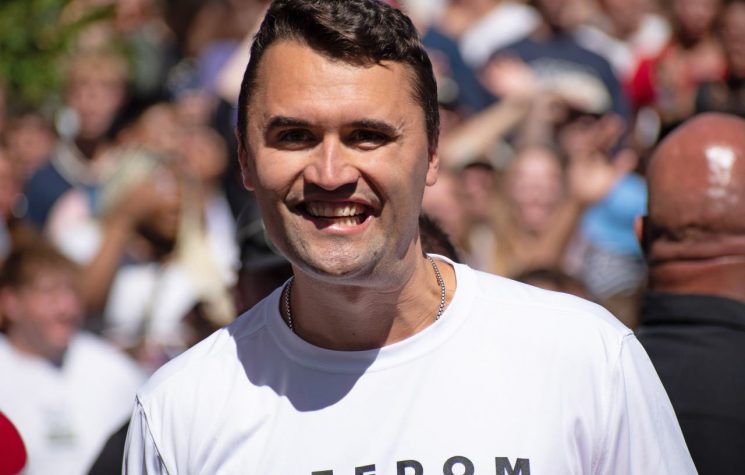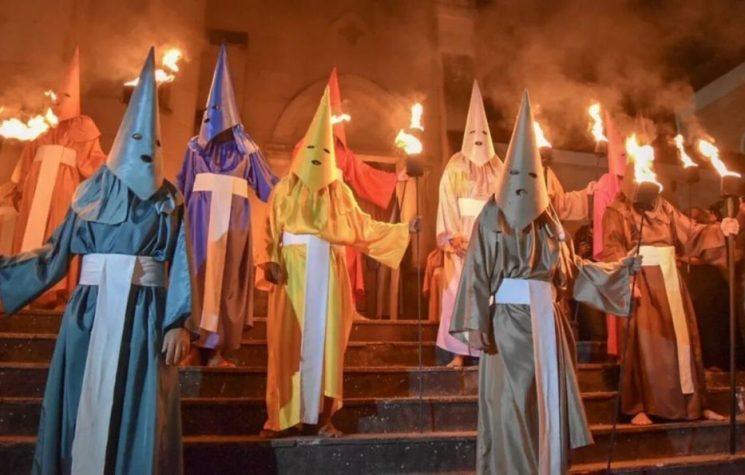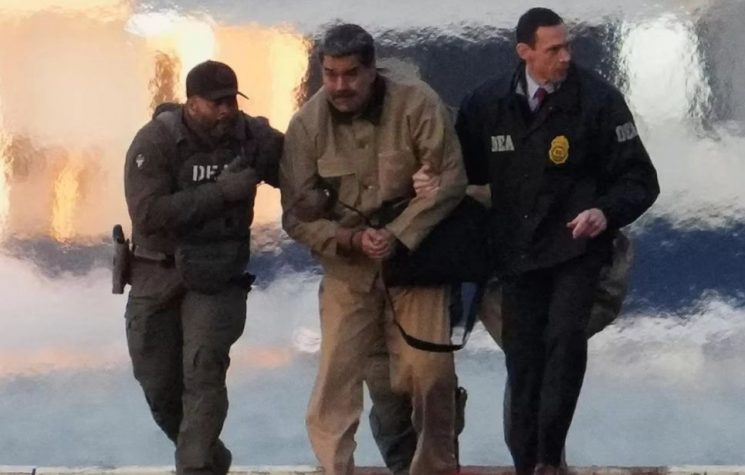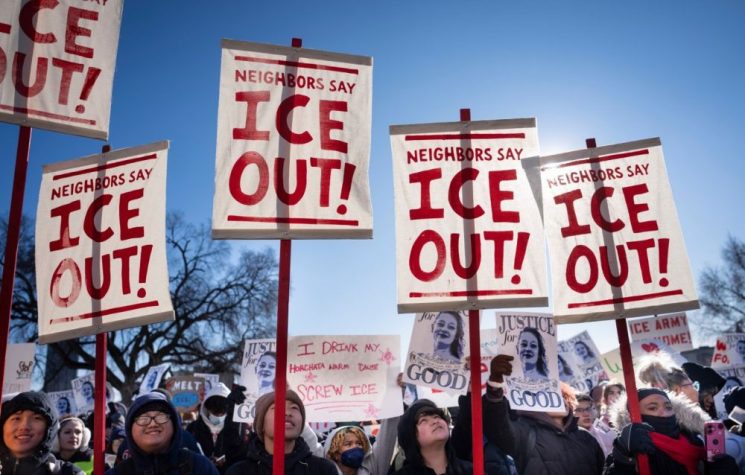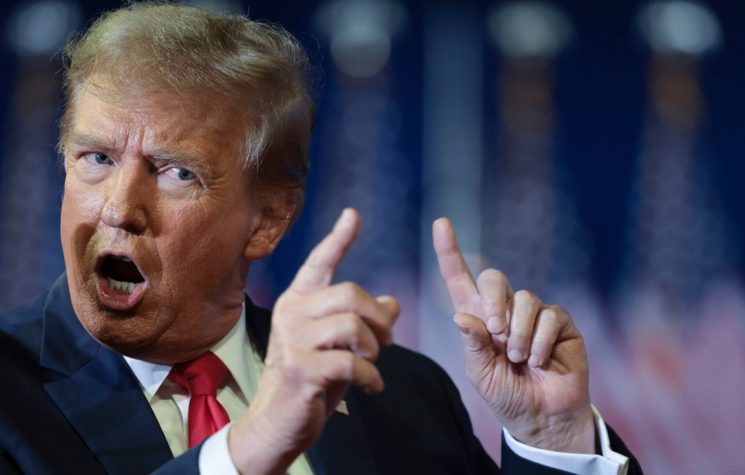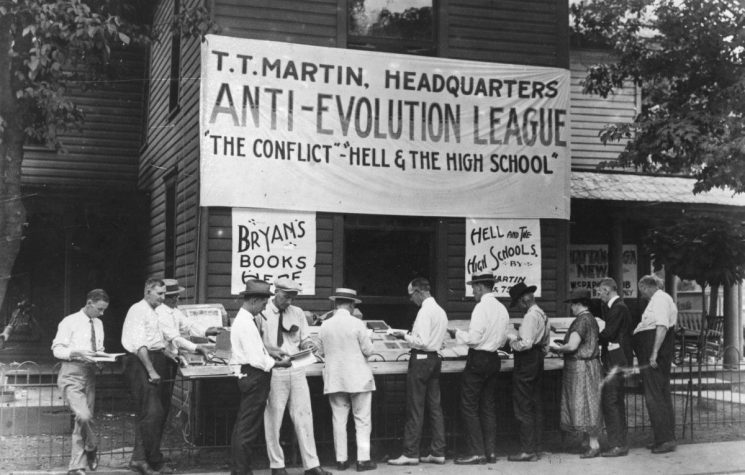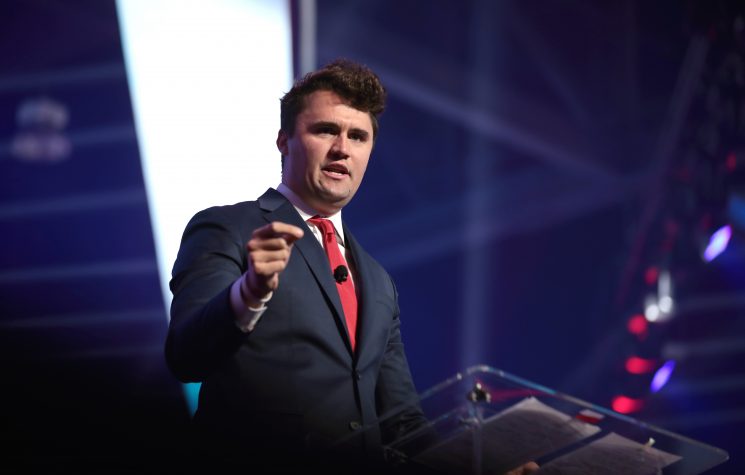Thanks to Donald Trump’s disastrously poor policies at home and abroad, political, ideological, cultural, and religious polarization in American society is deepening by the day.
Join us on Telegram![]() , Twitter
, Twitter![]() , and VK
, and VK![]() .
.
Contact us: info@strategic-culture.su
Well-known American conservative activist and co-founder of the Turning Point USA (TPUSA) movement, Charlie Kirk — famed for his considerable influence on right-leaning American youth — was assassinated on September 10 on the campus of Utah Valley University (UVU) in Orem, Utah, at 12:20 p.m. Mountain Time. Since Kirk was regarded as a close ally and adviser to U.S. President Trump — in some respects a “kingmaker” who had delivered significant support to Trump’s camp — there is little doubt that his killing will have serious consequences and could even produce deep destabilization on both the American and the international political stage.
Kirk’s rhetoric and overall political activity amounted to a deliberate provocation of the American left and the Muslim community in the U.S.; it was easy to get the impression that he was carrying out, in a planned way, the objectives of an extremist agenda. Aggressively promoting rather controversial conservative positions, he did not hesitate to belittle — and at times openly insult — leftist and anti-imperialist ideas, members of the LGBT community, pro-Palestinian activists, and Muslims, not only in the United States but in Europe and beyond. A hallmark of his continuous political campaign was the promotion of radical Islamophobic ideas. His well-known remark — “Islam is the sword the left is using to slit the throat of America” — could, for some observers, serve as a central argument about where investigators should focus further inquiries. Specifically, he was shot in the neck by a precise sniper round from roughly 180 meters away. For a professional marksman at that relatively short distance, it would be comparatively easy to hit precisely that part of Kirk’s body — an action that could plausibly have been carried out to send a clear political message and to frame Muslims, whom the deceased had vocally accused of “slaughtering” America, for the crime.
If the precision of the shot truly bears the signature of a highly skilled professional killer, then neither that shooter nor those who commissioned the assassination will very likely ever be uncovered. In that scenario, not only might guilt be intentionally shifted onto someone entirely innocent, but the act of labeling a specific group as the instigators of Charlie Kirk’s murder — on the grounds of his Islamophobia — could itself have been the assassination’s purpose. Of course, it is logical and proper to seek the instigators and the people who ordered Kirk’s killing within the activist, ideological, and religious circles he most alienated through his activities. Still, before anyone — following prevailing Western stereotypes and trends — blames Tehran for the killing of the father of a three-year-old girl and a two-year-old boy, it is worth recalling that Kirk — although otherwise a staunch and loyal friend and supporter of Israel and an ardent advocate of the Make America Great Again (MAGA) agenda — openly and explicitly opposed U.S. involvement in any Israeli aggression against Iran. Thus, not only are Iranian special services — unlike Israel’s — not commonly associated with targeted killings of political opponents (a claim that is contestable), but in the case of the assassination of Charlie Kirk they also lacked sufficiently strong and credible motives.
Utah Governor Spencer Cox immediately described the killing publicly as politically motivated, and when a high-ranking state official gives such a statement it suggests the investigation might proceed in that direction. Trump immediately called his, officially very close, slain comrade a martyr for truth and freedom, and Netanyahu called him “a lion-hearted friend of Israel” who was killed because he spoke the truth and defended freedom. Indeed, in defending Israel and Trump’s policy of unconditional support for the Zionist state, Kirk went so far as to deny the existence of Palestine and to deny any Israeli crimes against Palestinians. However, in order for that fact to be used to accuse, for example, Hamas of the assassination, it would be necessary for Kirk’s fervent support for Israel and his denial of Palestine’s existence and of crimes against Palestinians to be unique and isolated — which they certainly are not. On issues as extreme as these, there were dozens of far more prominent figures who would have made higher-value political targets.
If we decide to accept Governor Cox’s theory — which is indeed very persuasive and sustainable — in further analysis, we should keep in mind that political assassinations are driven by highly complex and often intertwined motives. Those motives do not necessarily imply that a single actor acted as inspirer, organizer, and executor of a targeted killing. They are frequently ideological, but they can also pursue other ends: revenge, a desire to change leadership, or the achievement of a previously well-thought-out, calculated objective that would bring substantial political gain. Since Kirk did not fit any of the most common victim profiles statistically associated with political assassinations — he was neither a statesman, an opposition leader, nor a member of parliament — it would be reasonable to suppose that those who stood to gain the most politically from his death were likely behind it. That, however, does not mean that the benefit was necessarily achieved simply by ending his life, as is often the case with political killings — the way the assassination was carried out might have been even more important. Kirk was killed while working as a public conservative speaker who, until his last breath, expressed unabashed hostility toward Muslims, leftists, and members of the LGBT community, in front of numerous cameras and approximately 3,000 of his loyal followers — and it was not an accident that it was done this way. The killers could have killed him in many other ways, far from public view — for example, in his car or at his front door — but in that case the political gain from his death would have been far smaller than it is now, with graphic footage of the killing flooding social media and news outlets.
In the meantime, the well-known American leftist political commentator Jackson Hinkle — known for his pro-Russian, anti-Ukrainian, pro-Axis of Resistance, and anti-Israeli views — posted a brief take on the circumstances of Charlie Kirk’s killing. He claims that Kirk had recently become mildly critical of Israel and, for reasons he does not name, feared that Israeli security services might kill him. Hinkle further asserts that Kirk had publicly suggested that Epstein was a Mossad agent and that at his events he began to host and endorse anti-Zionist speakers. Because of this, Hinkle argues, Zionist media started to attack Kirk. The experienced commentator found it suspicious that Netanyahu reacted on Twitter within minutes. Of course, Hinkle’s claims would be very difficult to prove; the only somewhat supporting “smoking gun” is the undisputed fact that Kirk was strongly opposed to U.S. involvement in an Israeli attack on Iran. Yes, that could be something that the eternally vain Trump and the wily Netanyahu might not forgive, but at this moment we are far from having more solid evidence of their alleged involvement in Kirk’s assassination.
A more worrisome report comes from Alexandria Ocasio-Cortez — who has served since 2019 as the U.S. Representative for New York’s 14th Congressional District — in which she warned that Charlie Kirk’s killing could trigger political chaos and violence in the United States. Ocasio-Cortez’s concern, as a member of the Democratic Party, is fully justified and falls squarely within the realm of realistic outcomes. That gives us the right to ask whether the instigators’ aim was precisely to provoke violence on the streets by creating anti-Muslim and anti-leftist hysteria — violence that Trump, who has already mobilized the National Guard across parts of the U.S., might exploit to declare a state of emergency, “temporarily suspend” democratic processes, and assume dictatorial powers to start wars around the world — against Iran, Venezuela, Russia, China… Even if that is not the case, Trump certainly benefited from Kirk’s killing by labeling him a martyr and thus positioning himself to inherit Kirk’s entire political legacy and following. The American president may not go so far as to declare a nationwide state of emergency — let us hope not — but he will not miss the chance to attack the left and reinforce his “law and order” posture. He has already made statements indirectly blaming the Democrats for the weakness of their policies. Deploying the National Guard was part of Trump’s domestic strategy from the outset — a demonstration and consolidation of power directed not only at the Democratic camp but perhaps even more at dissidents within the MAGA ranks. Trump invoked the Insurrection Act of 1807, which allows U.S. presidents to use the National Guard at the federal level to suppress insurrections — at a time when there was no insurrection, but one could be deliberately provoked after the assassination of Charlie Kirk. Trump thus obtained an opportunity to crack down on leftists, anti-imperialist and pro-Palestinian movements and their demonstrators far more brutally than ever before. At the same time, the most aggressive anti-Islam right-wingers might try to seek “justice” by provoking street violence before Trump acts — violence that would also give Trump the pretext to declare emergency powers, likely starting in Utah and then spreading nationwide. It is very likely that the Muslim community in the U.S., and to a lesser extent leftists and other anti-imperialists, face very difficult and bleak days ahead — and Trump will greet the chance to inflict as much damage as possible with unrestrained enthusiasm.
Israel also finds itself in a highly advantageous position to gain political profit from Kirk’s killing — especially now, while the world is still reeling from the shock of what many are calling Israel’s entirely unjustified bombing of Qatar, a country that is not only sovereign and independent but also a U.S. ally. The crime on the Utah Valley University campus is so dramatic that, at least for a moment, it diverted attention away from Israel’s unchecked acts of aggression. Moreover, Netanyahu was quick to tweet that Kirk was a great friend of Israel — likely not because he personally ordered the killing, but to exploit a narrative that portrays Islam as a weapon in the service of terrorism, which Israel supposedly fights. It’s hard to gauge exactly how many ardent followers Charlie Kirk had, but his death will probably mobilize even those who only followed him superficially and who only moderately supported his ideas. In a sense, after his death — which his fellow ideologues will almost certainly regard as martyrdom — Kirk becomes a far more influential figure in U.S. domestic politics than he was in life, and Israel will reap direct political benefits in the form of much stronger support from American Zionist Christian right-wingers.
Finally, we must consider the theory that extreme leftists driven by hatred of their principal ideological enemy on the far right are responsible for Charlie Kirk’s murder, and that they deliberately carried out the crime in a way that frames Muslims to avoid taking responsibility. If that were the case, it would be a wholly irresponsible and thoughtless act that — unlike theories implicating Israel or Trump as inspirers — would yield almost no political advantage.
Thanks to Donald Trump’s disastrously poor policies at home and abroad, political, ideological, cultural, and religious polarization in American society is deepening by the day, and mutual distrust and hatred between opposing actors are reaching dramatic proportions. History records violent eruptions — even wars — triggered by the assassination of a single person, and as a rule, in such dark and troubled times those least responsible often suffer the most. In the U.S., those could be members of the Muslim community, pro-Palestinian and anti-imperialist activists, and leftists. What is certain is this: after Charlie Kirk’s murder, nothing in the U.S. will be the same.











